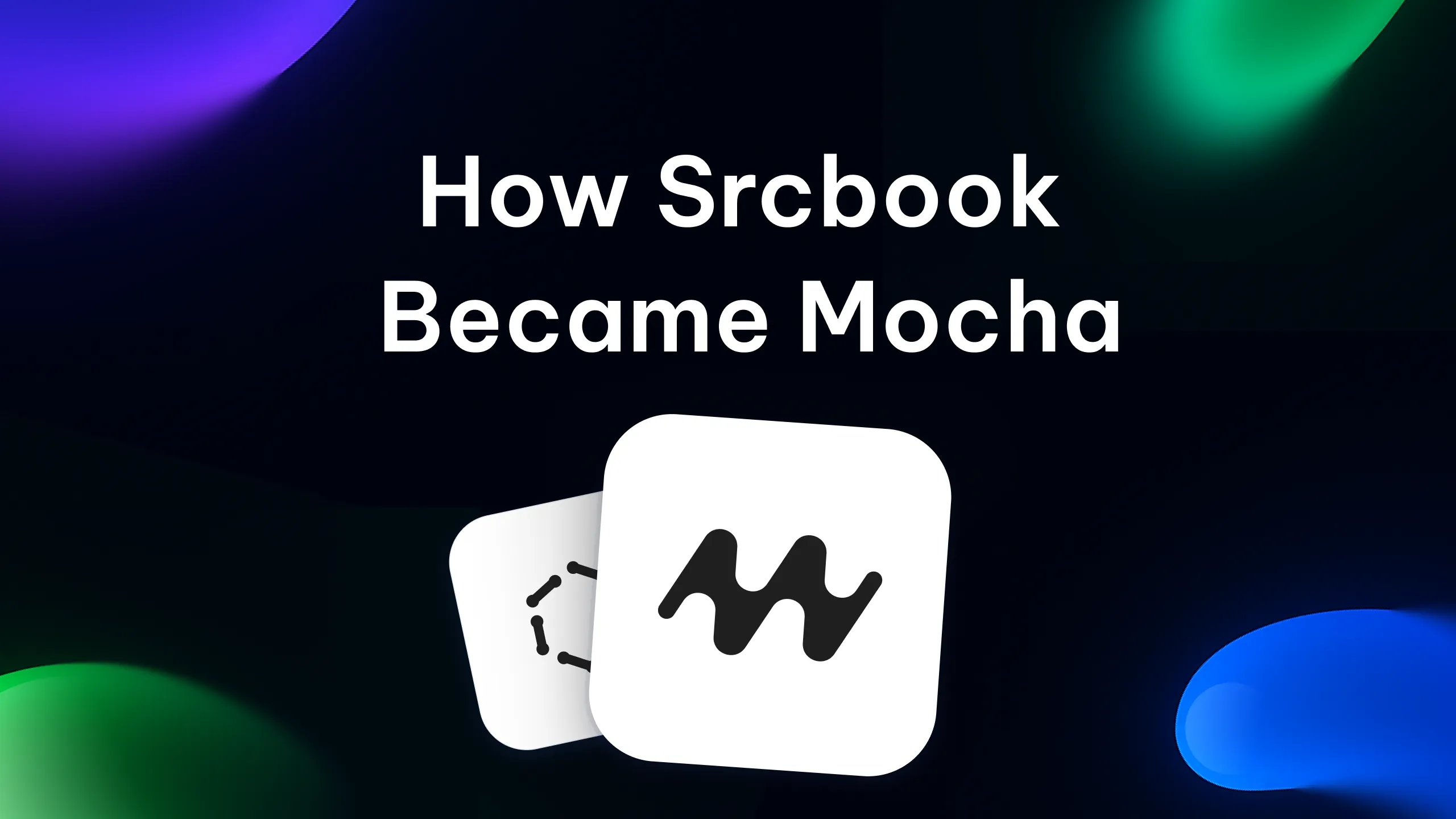
Ben and I quit our jobs at big tech companies to build something that mattered. After working together for 3.5 years at Cruise and another year as founding engineers at Privy, we’d caught the startup bug bad. We had promising careers, stable paychecks, and all the perks, but we couldn’t shake the itch to build our own thing.
So we jumped.
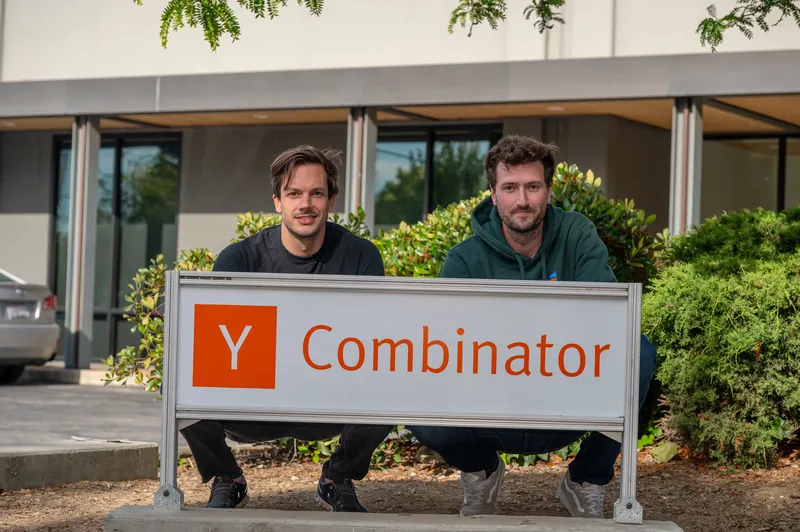
Building for the Wrong People
When we started this company, we thought we knew our audience: developers like us. We’d seen how TypeScript was taking over the AI space, and we noticed a gap: Python developers had Jupyter notebooks, but TypeScript developers were stuck with crude tools.
That’s how Srcbook was born: a TypeScript notebook for AI developers. We built what we thought we needed.
The product did okay. Hacker News loved it. We got some daily users. But something felt off.
Then we started actually talking to our users (novel idea, right?), and everything we thought we knew fell apart.
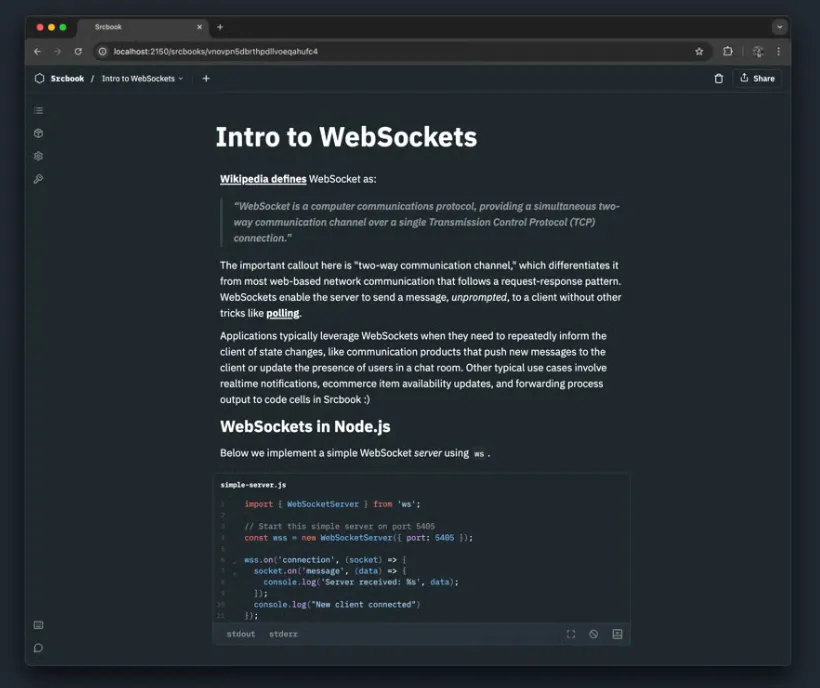
The Plot Twist
Following Y Combinator’s advice, we spent hours on user calls. What we heard surprised us.
User after user kept asking the same thing: “Can I turn this notebook into an actual app?” They wanted buttons, deployments, shareable links. They weren’t using Srcbook to explore data—they were trying to build products.
Even more surprising? Our most passionate users weren’t developers at all. They were creative professionals, entrepreneurs, people with ideas but no coding background. They’d somehow found our command-line tool (not exactly user-friendly) and were desperately trying to make it work because they saw potential.
One wellness consultant spent hours trying to install Srcbook on her Windows laptop. A carpenter wanted to build a portfolio site. An HVAC company owner needed a booking system. These weren’t our target users, but they were the ones contacting us passionately with feature requests.
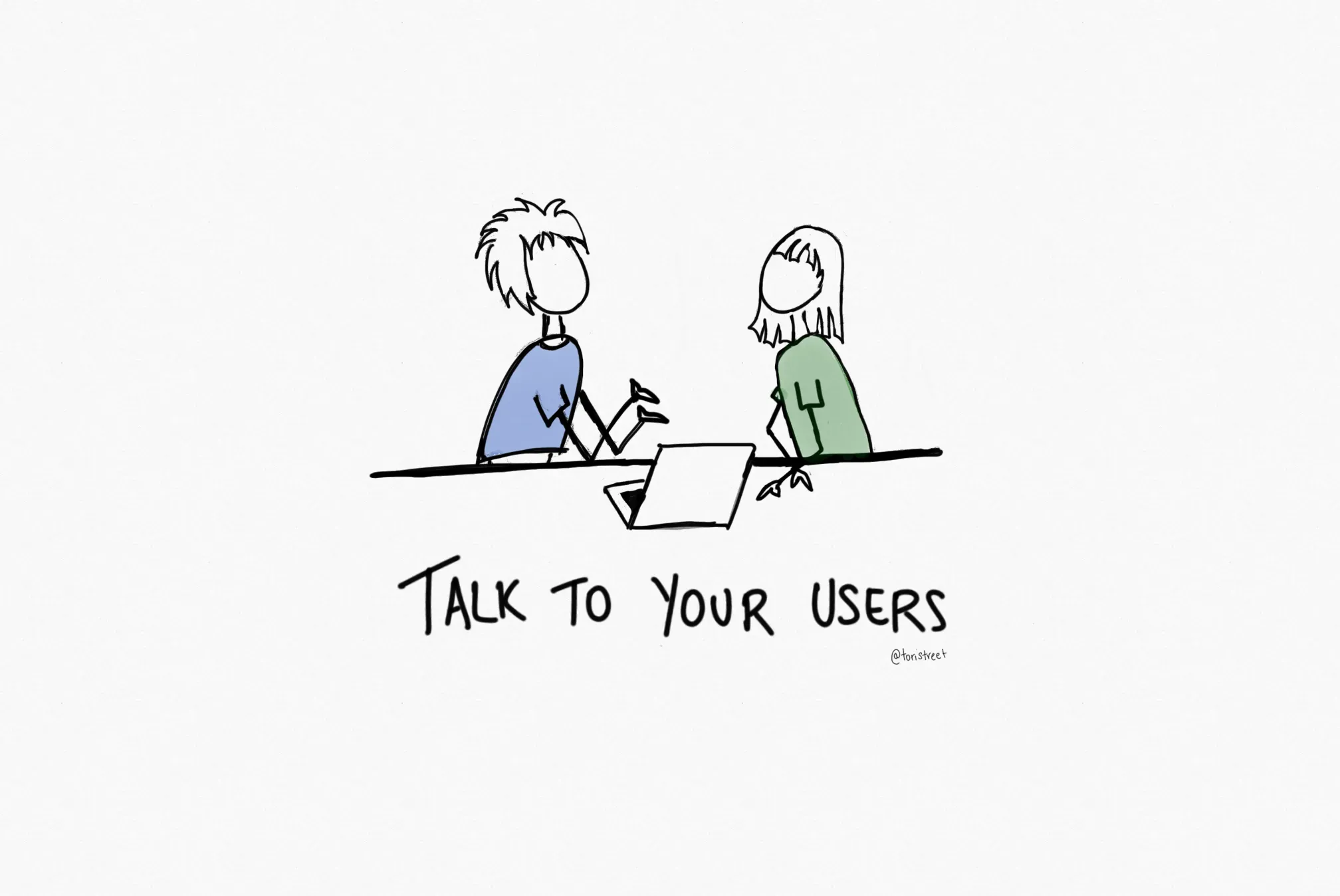
The Model That Changed Everything
While we were grappling with this identity crisis, something happened that changed our entire trajectory: Anthropic released Claude 3.5 Sonnet in summer 2024.
We’d been tracking AI coding models closely (Srcbook had some AI features), but honestly? We were skeptics. Every model we’d tried was mediocre at best. We’d shelved dozens of ideas because the AI just wasn’t good enough.
But Sonnet was different. Really different.
At a YC hackathon, I decided to test it. Could we build a full app. Not just snippets, but a complete functional web app using AI? The prototype was rough, held together with duct tape and prayers. But when we ran it…
Claude wasn’t just writing code. It was creating beautiful, functional interfaces. In minutes, it produced what would take a senior developer hours. We kept testing, kept pushing, kept expecting it to break.
It didn’t.
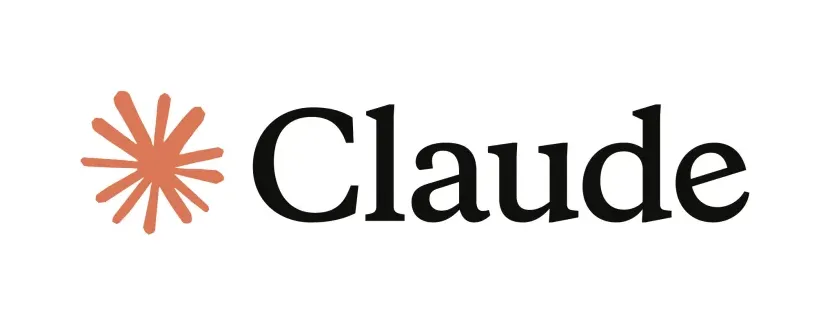
The Pivot
Everything clicked at once:
- Users wanted to build apps, not notebooks
- Non-technical people were desperate for accessible tools
- AI had finally reached the point where this was possible
We had a choice: keep building for developers (safe, familiar) or pivot entirely to serve these unexpected users (risky, exciting).
We chose excitement.
We dropped everything and rebuilt from scratch. Not a developer tool, but a consumer product. Not a notebook, but a complete app builder. The technical barriers had to go; no command line, no setup, just open your browser and build.
Other players were entering the space, taking shortcuts we didn’t like. They’d partner with Supabase or other backends, pushing complexity and costs to users. We went the hard route: building everything ourselves, keeping it simple for users even if it meant more work for us.
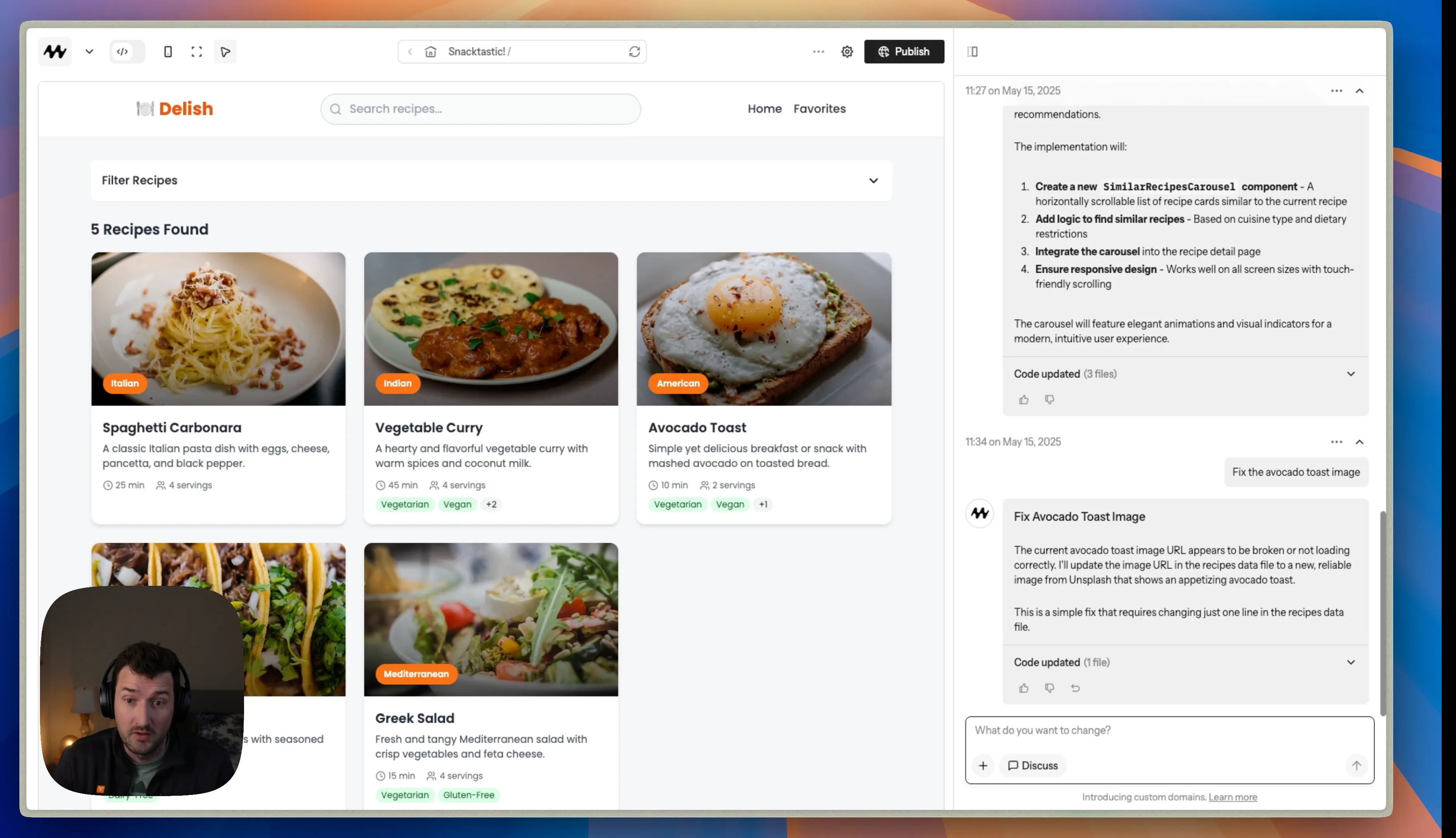
Personal Software: The Real Vision
As we rebuilt, a bigger vision emerged. We weren’t just making another website builder. We were enabling something new: personal software.
Think about it, 99% of human creativity is locked away because people can’t code. Every small business owner with a specific need, every creative with a unique vision, every person who thinks “I wish there was an app for that”, today they’re all stuck.
What if they weren’t?
What if building software became as easy as writing a Google Doc? What if you could pull out your phone and create a custom solution to your problem in real-time? Not choosing from templates or dragging pre-made blocks, but describing your exact need and watching it come to life?
That’s personal software. And that’s what we’re building.
Why “Mocha”?
As our vision crystallized, one thing became painfully obvious: the name “Srcbook” had to go.
“Src” is developer slang for source code directory. Non-developers couldn’t even pronounce it. We’d named our company for the very audience we were now leaving behind.
We wanted something warm, approachable, globally recognized. After countless brainstorming sessions (and yes, some with Claude), we landed on Mocha. Everyone knows (and loves) coffee. Everyone can say it. It feels creative, energetic, accessible, everything we wanted our product to be.

The Future We’re Building
Today, we watch our users build things we never imagined. An HVAC company in Texas built a customer portal to pitch their customers with custom widgets. A shower door designer in Florida created a visual configuration tool for clients. A wellness consultant made an entire booking and payment system.
These aren’t tech people. They’re regular people with specific problems who can now build their own solutions.
This is day zero. We’re building our own managed backend, refining our AI agent to be more than a coder, we want Mocha to be a thought partner that helps refine ideas and suggest improvements. We’re making it work on every device, because inspiration doesn’t wait for you to get to your laptop.
The no-code movement promised this future for a decade and never delivered. The difference now? AI that actually works. And we’re just getting started.
Imagine a world where every idea can become real. Where technical ability doesn’t gatekeep creativity. Where a billion people are building software for their specific needs, their communities, their wild ideas.
That’s the world we’re building with Mocha.
Come build with us. ☕